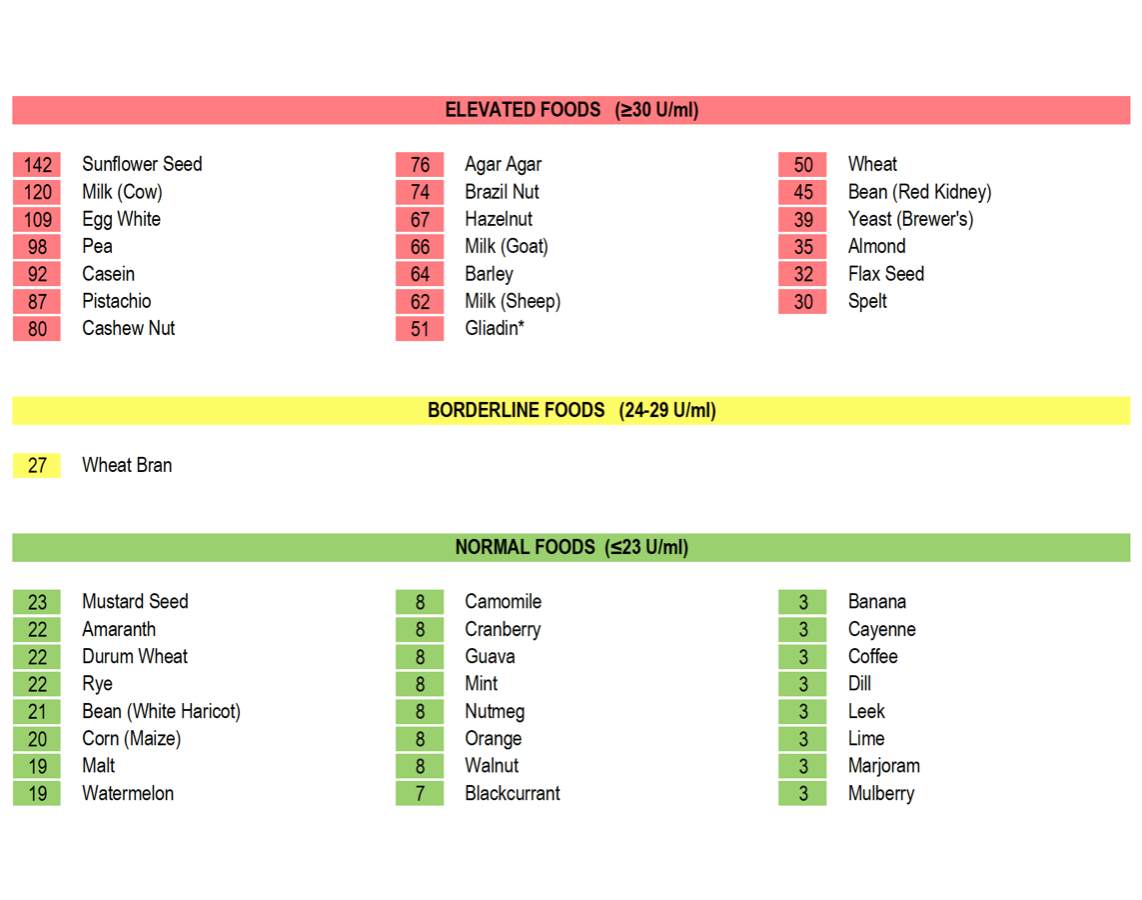Do you regularly suffer with IBS symptoms such as bloating, pain, wind and diarrhoea? If so, do you wonder if the foods you’re eating are triggering your symptoms? After all, if you frequently bloat after a meal, then it seems logical that something you ate caused the reaction.
However, it can often be hard to pinpoint exactly which foods cause problems. After all we rarely eat ingredients on their own. This is why many people turn to food sensitivity tests in the hope of identifying the culprit(s).
Testing for food sensitivities falls into two categories – testing for allergies, and testing for intolerances. To understand the difference between these, have a look at my earlier blog post.
Today I’m interested in looking at food intolerances. These arise from the body’s inability to digest certain foods properly due to enzyme deficiencies or sensitivity to food additives. Symptoms of food intolerances tend to be less severe than allergies. They frequently include the symptoms mentioned above – bloating, stomach pain, wind and/or diarrhoea. Common intolerances include a lactose intolerance (difficulty digesting lactose in dairy products), gluten intolerance or sensitivity to food additives like sulphites or MSG.
Testing for food intolerances
Identifying food intolerances can be more challenging than for allergies. Although there are a number of companies that offer food intolerance tests, I’m afraid that my experience of them has made me question their usefulness.
As a final year nutrition student, one of the leading companies offered me a food intolerance test, and I accepted it gladly. I had a history of IBS and knew that digestive health was the area that I wanted to focus on after graduation. I was therefore really keen to understand which foods I could remove from my diet to further control my symptoms.
Of the 120 everyday foods they tested, over 13% came back as being highly elevated – showing an intolerance – with others being moderately elevated. These were foods such as milk, wheat, seeds, egg white, nuts and yeast.
Just last month I completed another food intolerance test by a company keen for me to use it with my clients. Again it was easy to do. I had to fill 5 blood spots on a card and send it back to them to analyse. I was hoping that the results would correlate with the first test and show me that food intolerance testing could be something to recommend to IBS clients, but…
Foods that showed a high reaction on one test where listed as low on the other, and vice versa. Cow’s milk? Test 1 told me to remove it from my diet (with a score of 120 units/ml) while test 2 showed no reaction to it at all. Green beans showed at 100 units/ml sensitivity on test 2, while test 1 reported a score of 4.
I’m afraid that I remain unconvinced by the validity of these tests. Would I recommend them to a client? Sadly not.
So what food intolerance testing works?
The good news is that there IS a way to test for food intolerances. An elimination diet is considered the gold standard test for identifying intolerances and sensitivities. This method involves the exclusion of suspected foods from your diet for a duration of 2-4 weeks. There is then a systematic reintroduction of them, one at a time, while carefully noting any symptoms.
I recognise that it is challenging and time-consuming, but by systematically adding and removing foods one by one, any culprits can be identified.
Having said that, it can be difficult to pinpoint trigger foods by yourself. For this reason I strongly recommend undertaking an elimination diet under the guidance of a qualified nutritional therapist. They will support you throughout the process as well as looking at other areas of your digestion to improve either before, or after the diet has been completed.
Without such guidance, there’s a risk of spending a significant amount of time avoiding foods you enjoy, only to find yourself no clearer or more informed by the end of the challenge.
Moreover, as I mentioned above, intolerances often occur through a lack of digestive enzymes, and dysregulation of other key digestive processes. By focusing on supporting and improving these, many symptoms can be alleviated without making changes to the diet.
If you are suffering from IBS symptoms, I would love to invite you to book a free 30-minute consultation. Let’s chat through your digestive issues and see if one of my nutritional therapy programmes is what you, and your health, need right now.


 Do you eat burnt toast? Discover the link between AGEs and health
Do you eat burnt toast? Discover the link between AGEs and health